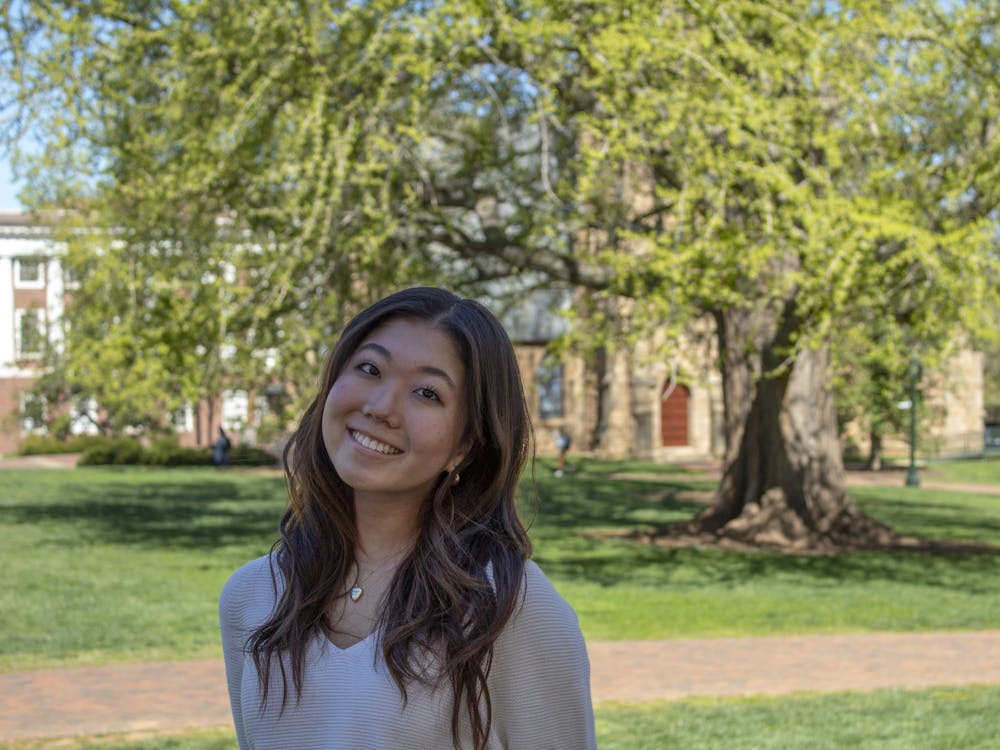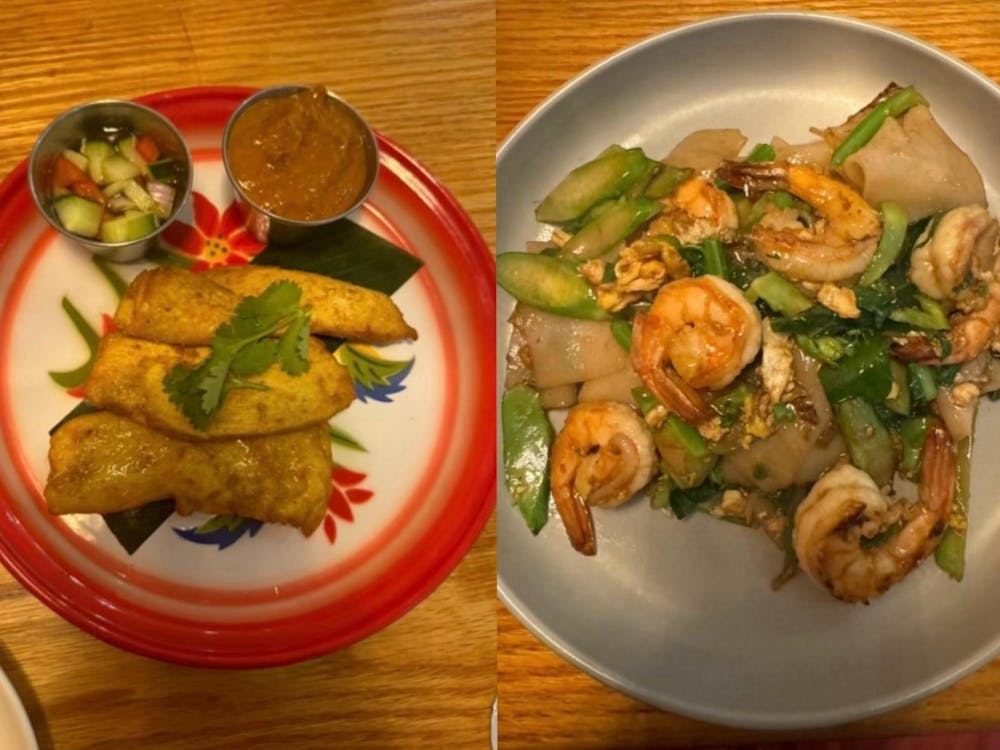Sunday afternoon, suitcases and backpacks lay strewn about the area surrounding the Amphitheater while students milled about, eating lunch and chatting with one another. But this was not the usual group of prospective students touring the University -- the Sustained Dialogue Campus Network 2005 Conference was being held here, hosting students from across the nation.
The SDCN, a subsidiary of The International Institute for Sustained Dialogue, is only in its second year of holding conferences -- the first conference was hosted by Dickinson College last year. Since the University boasts one of the strongest Sustained Dialogue programs in the country, it was a good choice for hosting this year's conference.
"We have probably the biggest SD program, so it's just really exciting to have everyone come here," said Jessica Fowler, chair of Sustained Dialogue. "It's great to kind of showcase SD at U.Va. a little bit."
Priya Parker, a recent graduate who is currently the Program Director of the SDCN, was a co-founder of Sustained Dialogue at the University, and returned to see all her hard work paying off.
"I'm biracial, so I think socially it was difficult for me to have multiple groups of friends. I was in a sorority that was predominantly white, I sang in Black Voices, I was a part of different multicultural organizations," Parker said as to why she started the program at the University. "I've never been asked, 'What are you?' so often. The whole point of diversity wasn't being met. ... I thought bringing together groups in a safe space that wouldn't otherwise meet or even talk about these issues would be a very good thing."
The program came to the University in the fall of 2001 and held its first dialogue groups in the spring of 2002. It has come a long way since then -- it now has over 250 members.
The 2005 SDCN Conference took place Saturday and Sunday, attracting about 130 students from 18 colleges. The Conference consisted of workshops, moderator training sessions and dialogue groups that were created to allow students from other schools to discuss how the same issues affect different campuses.
"Some of the best things about [the Conference] are getting to hear people's experiences at other schools and getting to learn about the racial climate at other schools," said third-year College student Johanna Peet, who is training to become a moderator. "At U.Va. we feel like we have so many problems, it's interesting to hear what other schools are struggling to work with."
Falynn Milligan and Josette Small, both seniors at Rutgers University, noted a major difference between Sustained Dialogue at the University and the one their own school. At Rutgers, for example, Sustained Dialogue is limited to a class that can be taken for credit. With some of the information they gained from the Conference, the students are hoping to start an organization on campus.
Dickinson junior Mara Waldhorn and sophomore Susan Burgg observed that Sustained Dialogue operates much differently on a larger campus. But even though Dickinson has only a fraction of the University's population, they said they will still return with valuable information to help their program.
"Our program will definitely change when we get back to campus," said Dickinson freshman Nick Smith.
With so many universities attending the Conference, students had a chance to share what was successful and what wasn't at their schools. The Conference consisted of 27 different workshops, giving ample opportunity to obtain new knowledge.
"I've taught a couple workshops, and it's really good to be able to turn over my experience and give my advice to other people," said fourth-year College student Carlton Wilson, who is a moderator. "It's also good to see so many different schools from across the country and to see how SD is becoming a nationwide organization."
The workshops were based on four main tracks, according to Parker: initiator, moderator skills, student leaders and administrator.
"A lot of the schools that are here either have young programs or don't have programs yet and are trying to start them," said fourth-year Engineering student Clark Herndon, a former Sustained Dialogue chair. "It's cool that people who have been through this before can speak from their own experiences and help one another out."
In addition to the workshops and training sessions, Sunday morning students participated in the Privilege Walk in the Amphitheater, sponsored by the Duke Center for Race Relations.
The Walk consisted of everyone standing in a straight line and the presenters asking different questions, which were meant to demonstrate the differences in privilege among students. Questions ranged from "Have you ever been physically harassed because of your race, gender, etc.?" to "Do you come from a family that's never had to worry about paying the rent or bills on time?"
The students who answered the questions in a way that demonstrated less privilege took a step back, while those who answered in a manner that showed more privilege took a step forward.
"So at the end of it, we had this white male in the front and a black male in the back," Peet said. "It tended to be really divided on race, with different ethnic groups more in the back, sort of symbolizing a visual stratification based on privilege."
Students from other schools also shared their experiences of doing the Privilege Walk at their own university.
"One kid said that when he did it at his school, you had to hold hands with everyone," Peet said. "So when you moved away from someone you literally had to disconnect from them -- it's a much more powerful thing."
Everyone seemed to benefit from the activities of the Conference, whether chatting with students from different parts of the country or learning essential information for their Sustained Dialogue program.
"We couldn't have picked a better weekend," Fowler said, referring to the nice weather and plethora of activities around Grounds available to the visiting students.
University Sustained Dialogue students were especially pleased to have Parker return to where she started it all.
"It's cool to see the work Priya's done, the foundation she laid, paying off," Herndon said. "I think it's also really good for our program, to strengthen it and to reinvigorate people and get them excited again about what we're doing."
Parker expressed her contentment with the progress Sustained Dialogue has made at the University, which Peet referred to as largely a testament to Parker's dedication.
"It's really neat to be coming back to having the place that we started it at host [the Conference] -- it's so much bigger than I ever imagined it," Parker said. "Just realizing and remembering that we're all part of this and part of something bigger than the sum of its parts -- it's just been really inspiring, a homecoming of sorts"




